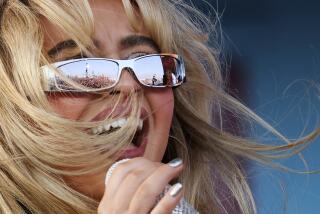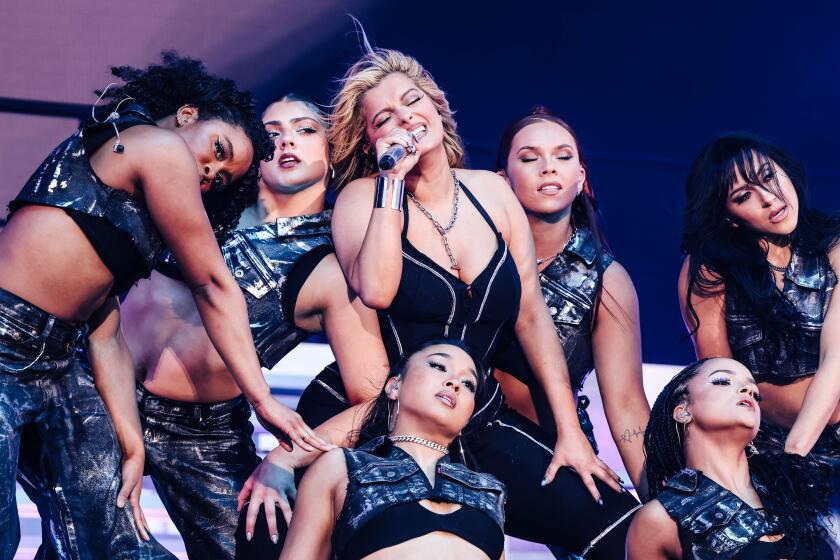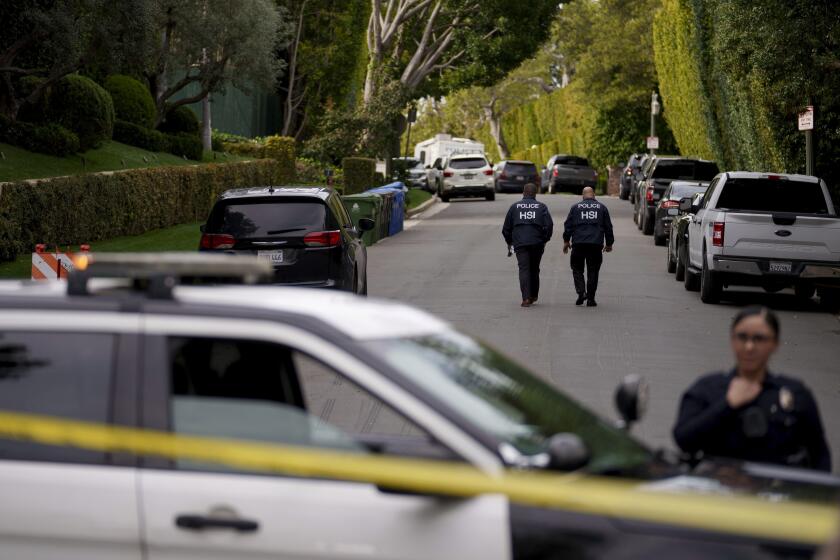Bob Dylan joins long list of Jewish musicians performing Christmas music
Bob Dylan’s decision to put out a Christmas album this year caught a lot of people by surprise. It wasn’t just that the preeminent songwriter of the rock era had chosen to record secular seasonal staples such as “Winter Wonderland” and “Here Comes Santa Claus” for his “Christmas in the Heart” collection.
Equally intriguing was that the musician born Robert Zimmerman and raised in a Jewish household also included exceptionally sincere versions of such quintessentially Christian carols as “Hark! The Herald Angels Sing,” “The First Noel” and “O Come All Ye Faithful.”
“There wasn’t any other way to do it,” the mercurial Rock and Roll Hall of Fame member told MTV’s Bill Flanagan in the only interview he’s given on the subject, a piece distributed exclusively to the International Network of Street Papers. “These songs are part of my life, just like folk songs.”
Veteran Dylan watchers could factor in both his much-publicized conversion to Christianity in the late ‘70s, after which he reconnected with his Jewish upbringing, as well as his proclivity for delving into the various roots of popular music, having previously recorded collections of folk and blues songs that had influenced his own music.
Dylan knows better than anyone that for decades one of the wonders of the holiday season has been the success Jewish musicians have had in writing or singing about a celebration central to Christendom.
Although it was Bing Crosby’s voice that shifted the whole enterprise of Yuletide pop music into high gear when he first crooned “White Christmas” in 1941, the man who wrote the melancholy melody and wistful words about treetops glistening and children listening was Israel Baline, far better known by the name he adopted when he became a professional songwriter, Irving Berlin.
Since then Jewish songwriters and singers have played an integral role in the creation of new Christmas music year in and year out.
Writer Nate Bloom has run down the roster of classic Christmas songs written or co-written by Jews for the Judaic website Interfaithfamily.com, and beyond “White Christmas,” the list includes “Winter Wonderland,” “The Christmas Song (Chestnuts Roasting on an Open Fire),” “Sleigh Ride,” “Let It Snow! Let It Snow! Let It Snow!,” “Rudolph the Red-Nosed Reindeer” and “I’ll Be Home for Christmas,” among dozens of others. Books have been written on the topic as well.
Barbra Streisand’s 1967 effort, “A Christmas Album,” has sold more than 5 million copies in the U.S. since its release, according to the Recording Industry Assn. of America. She put out a follow-up in 2001, “Christmas Memories,” which has given her another RIAA platinum award for sales of 1 million.
This year Neil Diamond joined musicians of Jewish heritage who have put out Christmas-themed collections with “A Cherry Cherry Christmas,” an album for which he wrote five original songs, including the title track, to weave in with standards such as “Joy to the World,” “White Christmas” and “Sleigh Ride.”
Diamond closed the album with a raucous performance of comedian Adam Sandler’s “The Chanukah Song,” which name-checks Jewish entertainers, including Kirk Douglas, Dinah Shore and “Star Trek’s” William Shatner and Leonard Nimoy.
“I thought I’d throw one in there for my people too, because we always feel a little left out around this time of year,” Diamond told the Telegraph in London recently. “Christmas music is amazingly evocative to people of all religions and cultures.”
Others also cite the universal aspects of the holiday season -- and the role of music in it -- as their justification for taking on the subject of Christmas.
“I feel the Christmas holidays and the music are basically, for me, not religious,” Neil Sedaka, one of the most prolific and successful songwriters of the ‘60s and ‘70s, said from his home in L.A. recently. “I’m proud to be Jewish, but I don’t practice it. To me the holidays are about bringing friends and family together. I can remember vividly years ago listening to Bing Crosby’s ‘White Christmas’ and thinking that Christmas music should be played throughout the year because it’s so joyous.”
Sedaka’s 2008 double album, “Miracle of Christmas,” brought together one disc of original songs he’d written, with a second disc of traditional songs and carols that he’d put together for the QVC cable channel.
“I started out as a concert pianist at the Juilliard School,” Sedaka said, “and I’m a very studied musician. I think of the music first, and what it brings to the people emotionally.”
Barry Manilow too says that the power of music, more than the scriptural messages, has spurred him to record three collections of Christmas music over the years.
“What I connect with is the songwriting,” said Manilow, who was raised in New York primarily by his mother and her Russian Jewish family. “Great songs like ‘White Christmas’ and ‘Home for the Holidays’ -- people like Irving Berlin and Johnny Mercer and Harry Warren -- they’re the guys who wrote this style of music that I adore.”
His latest, “In the Swing of Christmas,” originally appeared two years ago as a Hallmark exclusive and this year has been reissued for wider release.
It focuses on jazz and big-band arrangements of holiday songs, tapping one of the musical skills that gives him the greatest satisfaction: arranging. That’s the part of performance that determines what key, tempo, style and harmonies surround familiar words and melodies.
He included Berlin’s “Count Your Blessings,” another song from the 1954 musical “White Christmas” with Crosby, Danny Kaye and Rosemary Clooney, the film that brought the title song into the Technicolor age.
“It’s one of the most economical and emotional songs ever written, and it’s so simple,” Manilow said. “There’s nobody that writes like this anymore, and there was no other album I would ever be able to do ‘Count Your Blessings’ on. So when the idea for this came up, I thought, ‘Oh, good -- a Christmas album.’ ”
More to Read
The biggest entertainment stories
Get our big stories about Hollywood, film, television, music, arts, culture and more right in your inbox as soon as they publish.
You may occasionally receive promotional content from the Los Angeles Times.






